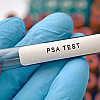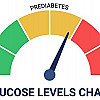
Extreme heat endangers older adults: What to know and do

Want to cool down? 14 ideas to try

What is a PSA test and how is it used?

Blood sugar–friendly fruits if you have diabetes

Gratitude enhances health, brings happiness — and may even lengthen lives

Respiratory health harms often follow flooding: Taking these steps can help

Could tea tree oil help treat acne or athlete’s foot?

Hemoglobin A1c (HbA1c): What to know if you have diabetes or prediabetes or are at risk for these conditions

What could be causing your blurry vision?

Avocado nutrition: Health benefits and easy recipes
Feel-good hormones: How they affect your mind, mood, and body

Hormones are your body's chemical messengers. Once released by glands into your bloodstream, they act on various organs and tissues to control everything from the way your body functions to how you feel.
One group of hormones are nicknamed the "feel-good hormones" because of the happy and, sometimes, euphoric feelings they produce. They're also considered neurotransmitters, which means they carry messages across the spaces between nerve cells. What are the four feel-good hormones? Dopamine, serotonin, endorphins, and oxytocin.
You can boost levels of these hormones with some simple lifestyle changes, like diet, exercise, and meditation, and possibly improve your mood in the process.
Do you need a supplement?
There are many natural ways to increase levels of feel-good hormones in your brain, including with diet, exercise, and by spending time with the people you care about. In a quest to feel better and prevent depression, it's tempting to reach for a supplement as a quick pick-me-up.
For most people, supplementing these hormones isn't necessary. And in some cases, supplements can cause unwanted and even serious side effects. For example, 5-hydroxytryptophan (5-HTP) supplements may cause headaches, drowsiness or an upset stomach with nausea and vomiting. In the past, some 5-HTP supplements were linked to a very rare condition called eosinophilia myalgia syndrome (EMS) that affects the muscles, skin, and lungs.
Before taking any supplements, it's a good idea to check with your doctor to make sure the product you plan to buy is safe for you. You may not even need a supplement unless you are deficient in a particular hormone. And if you have a condition that's marked by abnormally low levels of one of these hormones, such as Parkinson's disease, your doctor can recommend medication to treat it.
Here are the links to articles looking at each of the four feel-good hormones and how they work:
Image: tomozina/Getty Images
Disclaimer:
As a service to our readers, Harvard Health Publishing provides access to our library of archived content. Please note the date of last review or update on all articles.
No content on this site, regardless of date, should ever be used as a substitute for direct medical advice from your doctor or other qualified clinician.

Extreme heat endangers older adults: What to know and do

Want to cool down? 14 ideas to try

What is a PSA test and how is it used?

Blood sugar–friendly fruits if you have diabetes

Gratitude enhances health, brings happiness — and may even lengthen lives

Respiratory health harms often follow flooding: Taking these steps can help

Could tea tree oil help treat acne or athlete’s foot?

Hemoglobin A1c (HbA1c): What to know if you have diabetes or prediabetes or are at risk for these conditions

What could be causing your blurry vision?

Avocado nutrition: Health benefits and easy recipes
Free Healthbeat Signup
Get the latest in health news delivered to your inbox!
Sign Up

